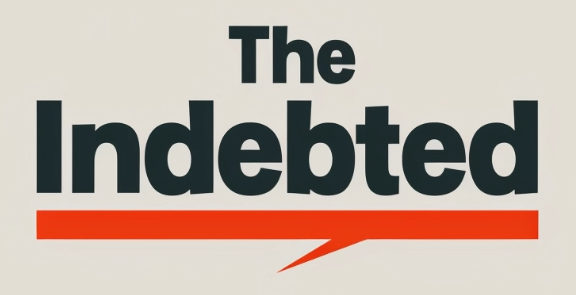Debt can be a source of stress, anxiety, and even depression for many people. The burden of debt can have a significant impact on our mental health, affecting our mood, our ability to concentrate, and our overall sense of well-being. In fact, research has shown that people with debt are more likely to experience mental health problems than those without.
The link between debt and mental health is complex and multifaceted. Debt can cause stress and anxiety, which in turn can lead to depression and other mental health problems. At the same time, mental health problems can make it harder to manage debt, creating a vicious cycle that can be difficult to break. This is why it is important to take a holistic approach to debt and mental health, addressing both issues in tandem in order to achieve the best possible outcomes.
If you are struggling with debt and mental health problems, it is important to seek help as soon as possible. There are many resources available to help you manage your debt and improve your mental health, from financial counseling to therapy and medication. By taking a proactive approach to your mental health and your finances, you can break the cycle of debt and start living a happier, more fulfilling life.
Understanding the Psychological Impact of Debt
As someone who has experienced the stress and anxiety of financial strain, I know firsthand the psychological impact that debt can have on mental health. It’s not just about the numbers on a balance sheet; it’s about the toll that debt takes on our emotional well-being. In this section, I’ll explore the ways in which debt can affect our mental health and the vicious cycle that often ensues.
Stress and Anxiety from Financial Strain
When we’re in debt, it’s natural to feel stressed and anxious about our financial situation. We may worry about how we’ll pay our bills or whether we’ll be able to afford basic necessities like food and housing. This constant worry can lead to physical symptoms like headaches, stomach aches, and difficulty sleeping. It can also affect our relationships and make it harder to focus on work or other responsibilities.
Depression and Debt
In addition to stress and anxiety, debt can also contribute to depression. Research has shown that people who are in debt are more likely to experience symptoms of depression than those who are not. This may be due in part to the feelings of hopelessness and helplessness that can come with financial strain.
The Vicious Cycle of Debt and Mental Health Issues
Perhaps the most insidious aspect of debt’s impact on mental health is the vicious cycle that often develops. When we’re feeling stressed, anxious, or depressed, it can be harder to make good financial decisions. We may be more likely to overspend or take on more debt in an attempt to feel better in the short term. This, in turn, can lead to even more stress and anxiety as our debt load continues to grow.
It’s important to remember that debt is not a personal failing. Many factors can contribute to financial strain, from job loss to unexpected medical expenses. If you’re struggling with debt and its impact on your mental health, know that you’re not alone. There are resources available to help you manage your debt and take care of your mental health.
Demographics of Debt and Mental Health
When it comes to the link between debt and mental health, there are a number of demographic factors that can play a role. Here are some of the key factors to consider:
Age and Debt Accumulation
One of the most significant factors in debt accumulation is age. Younger people tend to have less accumulated debt, while older people often have accumulated more. This is because younger people may not have had as much time to accumulate debt, while older people may have taken on more debt over time. According to a study published in the Journal of Financial Therapy, people in their 20s and 30s tend to have more credit card debt than those in their 40s and 50s. However, older people tend to have more mortgage debt than younger people.
The Impact of Income and Employment on Mental Well-being
Income and employment are also important factors to consider when looking at the link between debt and mental health. People who have lower incomes or who are unemployed are more likely to experience mental health problems related to debt. According to a study published in the Journal of Health and Social Behavior, people who experienced unemployment were more likely to experience depression and anxiety. Additionally, people who have lower incomes are more likely to experience financial stress, which can lead to mental health problems.
It’s also worth noting that people who have higher levels of education tend to have lower levels of debt and better mental health outcomes. According to a study published in the Journal of Family and Economic Issues, people with higher levels of education tend to have less debt and are less likely to experience financial stress.
Overall, there are a number of demographic factors that can impact the link between debt and mental health. By understanding these factors, we can better understand how debt affects different populations and work to develop interventions that can help mitigate the negative effects of debt on mental health.
Types of Debt and Their Unique Challenges
As I explore the link between mental health and debt, it’s important to understand the different types of debt and their unique challenges.
The Burden of Unsecured vs. Secured Debt
Unsecured debt, such as credit card debt or medical bills, is not backed by collateral. This means that if you are unable to make payments, your credit score will suffer, and you may face collection calls or legal action. The burden of unsecured debt can be especially challenging for those struggling with mental health issues. According to a study by the Money and Mental Health Policy Institute, “people with mental health problems are three times more likely to be in problem debt than those without mental health problems.”
On the other hand, secured debt, such as a mortgage or car loan, is backed by collateral. While this type of debt can also be challenging, it generally comes with lower interest rates and more manageable payment plans.
Credit Card Debt and Mental Health
Credit card debt is one of the most common forms of unsecured debt and can have a significant impact on mental health. According to a survey by the American Psychological Association, “money is a somewhat or very significant source of stress for 64% of adults.” Credit card debt can be especially stressful because it often comes with high interest rates and can quickly spiral out of control.
To manage credit card debt and improve mental health, it’s important to create a budget, prioritize payments, and seek professional help if necessary.
Student Loan Debt and Future Financial Health
Student loan debt is a unique form of debt that can impact future financial health. According to a study by the Federal Reserve, “student loan debt is preventing many young Americans from buying homes, starting families, and saving for retirement.” This can lead to feelings of anxiety, depression, and hopelessness.
To manage student loan debt and improve mental health, it’s important to explore options such as income-driven repayment plans, loan forgiveness programs, and refinancing. It’s also important to seek support from loved ones and mental health professionals.
Strategies for Managing Debt and Improving Mental Health
Debt can have a profound impact on mental health, but there are strategies you can use to manage your debt and improve your overall well-being. Here are a few strategies that have been shown to be effective:
Creating a Sustainable Budget
One of the most important things you can do to manage your debt is to create a sustainable budget. This means taking a hard look at your income and expenses and figuring out where you can cut back. You may need to make some tough choices, like giving up your daily latte or downsizing your living situation, but in the long run, it will be worth it. By creating a budget that you can stick to, you’ll be able to pay down your debt and reduce your stress levels.
Seeking Professional Financial and Psychological Support
If you’re feeling overwhelmed by your debt, it may be helpful to seek out professional support. Credit counseling can be a great resource for people who are struggling with debt. A credit counselor can help you create a debt management plan and negotiate with your creditors on your behalf. Additionally, seeking psychological support from a therapist or counselor can help you manage the stress and anxiety that often comes with debt.
Self-Care and Coping Mechanisms
In addition to seeking professional support, it’s important to practice self-care and develop coping mechanisms that work for you. This can include things like exercise, meditation, spending time with loved ones, or engaging in a hobby that brings you joy. By taking care of yourself and finding healthy ways to cope with stress, you’ll be better equipped to manage your debt and maintain good mental health.
Overall, managing debt and improving mental health requires a multifaceted approach. By creating a sustainable budget, seeking professional support, and practicing self-care, you can take control of your finances and improve your well-being.
Legal and Social Support Systems
When dealing with debt and mental health, it is important to know that there are legal and social support systems in place to help you. Here are a few options to consider:
Bankruptcy and Breathing Space
If you are struggling with debt, bankruptcy may be an option to consider. It is a legal process that can help you get out of debt and start fresh. However, it is important to note that bankruptcy can have long-term consequences, so it should be considered carefully and with the help of a professional.
Another option is the Breathing Space scheme, which allows you to apply for a temporary freeze on your debts. This can give you time to get your finances in order and seek professional help. During the Breathing Space period, creditors are not allowed to contact you or take any action against you to collect the debt.
The Role of Non-Profit Organizations
Non-profit organizations like StepChange and Citizens Advice offer free debt advice and can help you create a debt management plan. They can also provide emotional support and help you access other resources, such as legal aid or mental health services.
It is important to remember that you are not alone and that there are resources available to help you. Seeking help is a sign of strength, not weakness.





